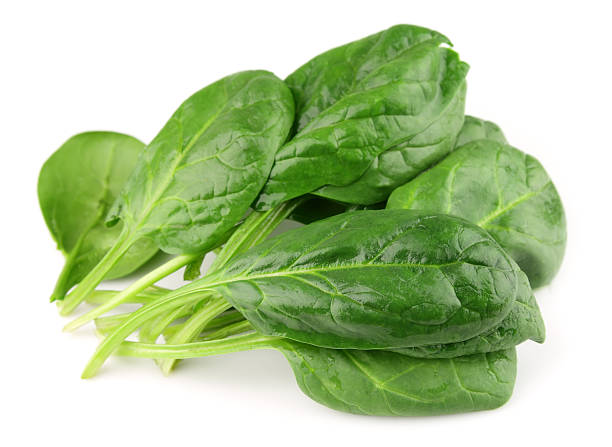Spinach is a great staple food to add to your diet. This leafy green vegetable grows all year round and is packed with vitamins and minerals. There are two basic types of spinach flat-leaf and savoy. When you buy fresh, bunched spinach at the grocery store, it is usually savoury spinach. The leaves of savoy spinach are typically wrinkled and curly. Flat spinach, also known as baby spinach, is widely popular and is often sold bagged, canned, or frozen. The health benefits of spinach are abundant.
Yash Birla says that it helps in lowering blood pressure. Spinach is rich in several minerals that your body needs, including potassium. Consuming foods that are high in potassium helps lower your blood pressure. It makes your eyes healthy. Spinach is an excellent source of lutein, an antioxidant known to protect against age-related eye diseases such as macular degeneration and cataracts.
Studies have found that people who take lutein supplements are at a lower risk for macular degeneration, which is the leading cause of vision impairment and blindness. Cataracts are an eye condition caused by the oxidation of the lens of the eye. Studies have shown that lutein appears to prevent ultraviolet damage to your lenses. It helps in the improvement of cognition. Lutein has also been shown to help preserve cognitive abilities. Studies of older adults have shown that those with higher lutein levels exhibited better verbal fluency, memory, reasoning ability, and processing speed than those with low amounts of the nutrient.
The Health Benefits of Spinach include its ability to make your bones healthy. Vitamin K is essential to bone health and growth, and spinach is packed with it. Eating just one cup of spinach fulfils the recommended daily amount of Vitamin K your body needs. Yash Birla includes it in his diet which makes his skin healthy. The vitamin A in spinach is used by your body to grow tissues, including the largest organ in your body, the skin.
Not only does Vitamin A support the skin’s immune system by preventing disease and damage, but it also helps the skin stay hydrated, reducing the appearance of fine lines and wrinkles. Spinach is an excellent source of iron, which helps your body make haemoglobin. Haemoglobin is needed to transport oxygen from your lungs to the rest of your body. This is why one of the primary symptoms of iron deficiency is heavy fatigue.
The Health Benefits of Spinach include the presence of nutrients, including Vitamin A, Vitamin C, Vitamin K, iron, folate, and potassium.
Yash Birla says spinach is rich in oxalate, a naturally occurring substance found in almost all plants.
People at risk for developing calcium oxalate kidney stones should moderate their intake of oxalate-rich foods. If you are in this risk group, talk to your doctor about including spinach in your diet. There are several ways in which you can cook spinach. Raw, cooked, canned, or steamed, plain old spinach isn’t always exciting. But when combined with other foods, spinach can be delicious.








Great post, I believe people should acquire a lot from this web site its really user pleasant.
[…] for magnesium. Magnesium is involved in over 300 bodily functions. According to several studies, spinach can help decrease blood pressure and enhance heart […]
[…] maintaining healthy blood pressure. Include potassium-rich foods like bananas, oranges, potatoes, spinach, and tomatoes in your diet. Potassium helps counteract the effects of sodium, promoting a healthy […]